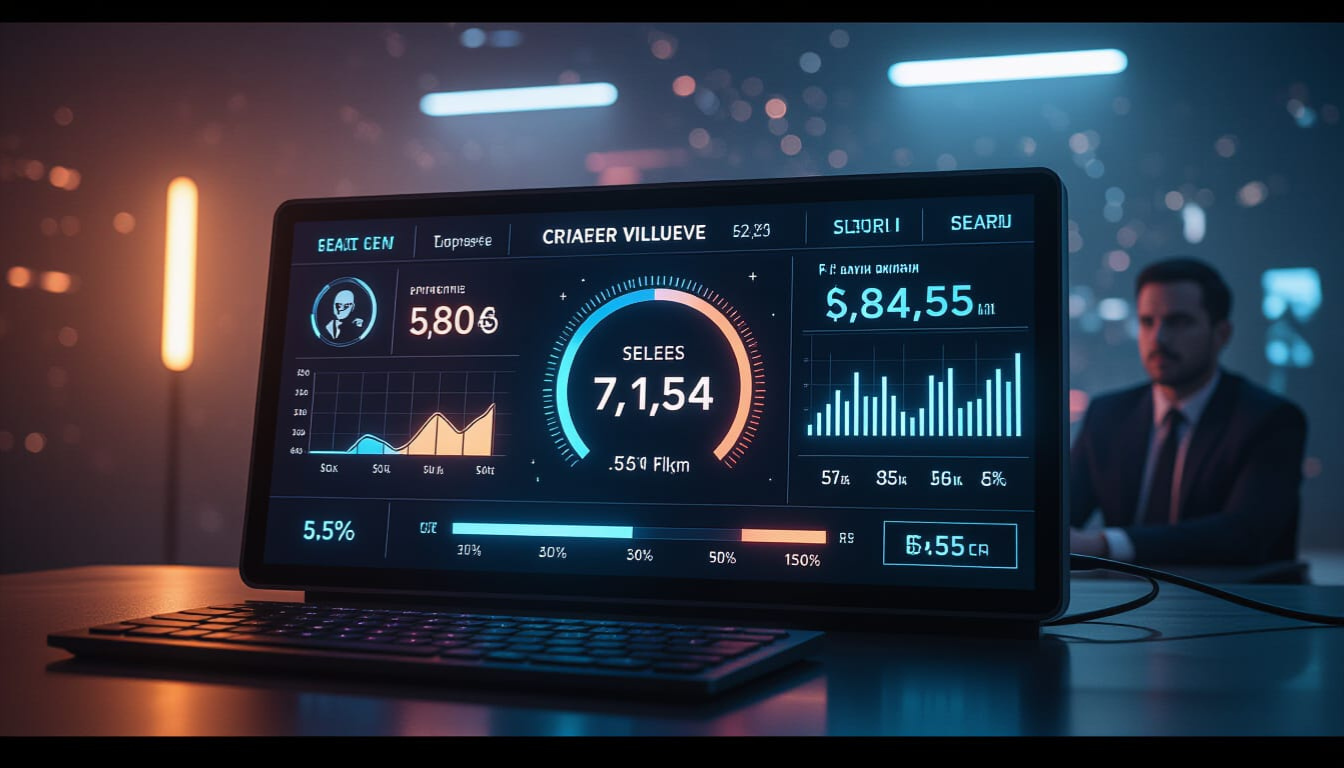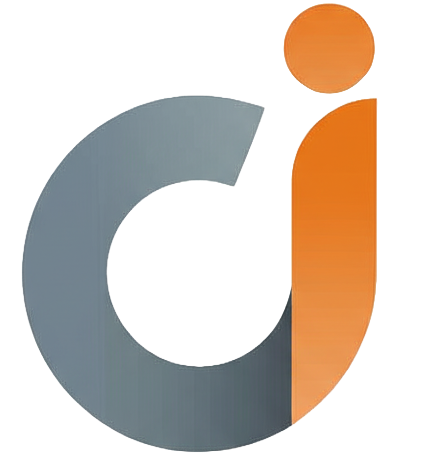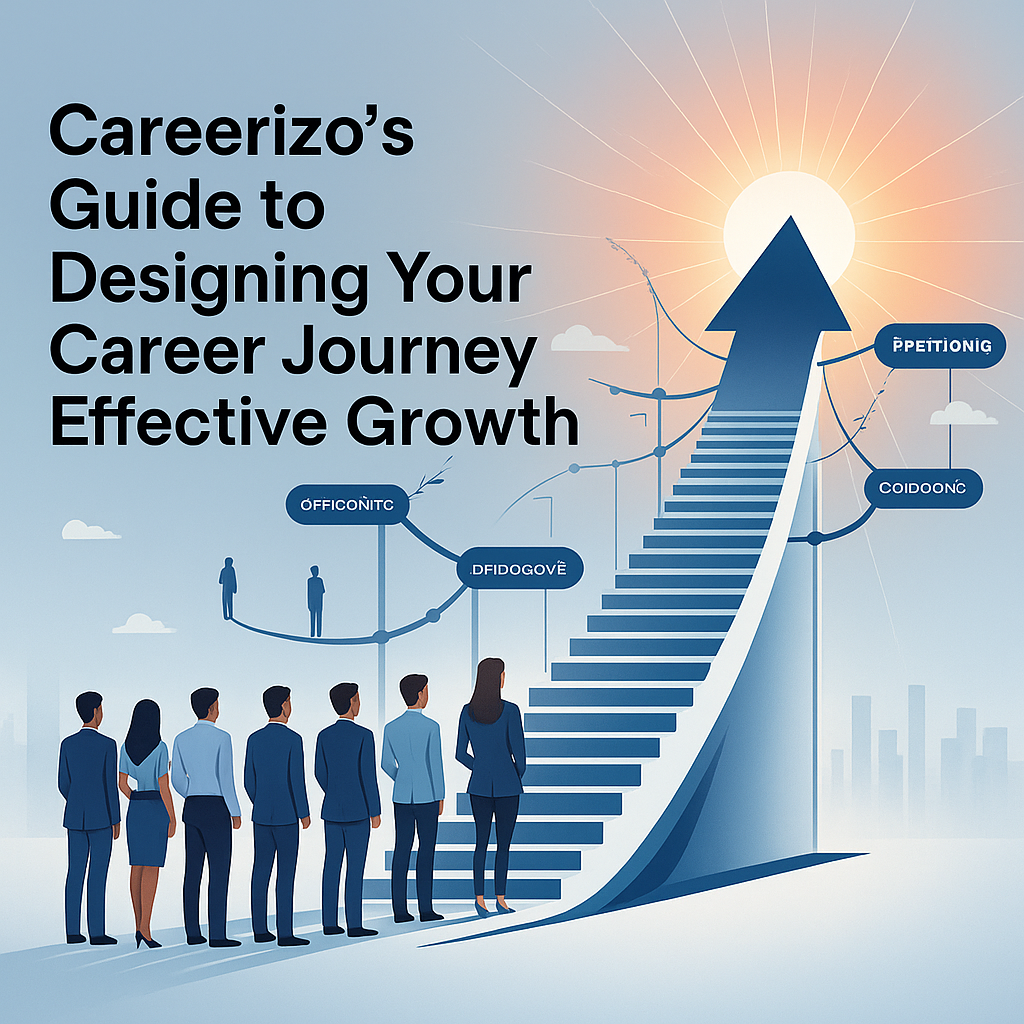Careerizo’s Guide to Designing Your Career Journey Effective Growth

Let’s be honest, your career isn’t just a job, it’s your life’s adventure story, And like any good story, it needs a plot, characters, and most importantly, a direction that makes sense for you
I remember sitting in my first cubicle, looking at an inspirational poster, saying “hang there” with a cat swinging from a cat’s branch, when he was hitting me, I was hanging there, I was hanging by a thread, felt randomly for my career.
By the way, if you’re reading this feeling stuck, overwhelmed, or just plain confused about where your career is headed, you’re in the right place. We’re going to dive deep into creating a career path that doesn’t just pay the bills but actually lights you up inside.
Why Most People Get Career Planning Wrong
Here’s the thing about career planning, most folks approach it like they’re following a GPS to the grocery store, They plug in a destination and expect to follow a straight line there, But careers aren’t highways, they’re more like hiking trails with unexpected turns, scenic detours, and sometimes you’ve got to backtrack to find a better path.

The traditional approach tells you to pick a career in your twenties and stick with it until retirement, Honestly, that advice is about as outdated as flip phones, Today’s job market changes faster than fashion trends, and what worked for your parents might not work for you.
Let’s dive into what effective career growth really looks like, It’s not about climbing a ladder anymore, it’s about building a portfolio of experiences that stack on top of each other like building blocks.
Understanding Your Career Foundation
Before you can design your journey, you need to know your starting point, think of this as your career GPS coordinates. You can’t navigate anywhere without knowing where you currently stand
Your career foundation consists of three main pillars: your skills, your values, and your natural talents, These aren’t separate things, they work together like ingredients in your grandmother’s secret recipe
Skills are what you’ve learned to do well, Maybe you’re a wizard with spreadsheets, a natural at public speaking, or you can code like it’s nobody’s business, These are your tools, and the good news is you can always sharpen them or learn new ones.
Values are what matter to you deep down, do you value flexibility over security? Creativity over stability? There’s no right answer here, but getting clear on your values is like having a compass for your career decisions
Natural talents are those things you’ve always been good at, sometimes without even trying Maybe you’re the person everyone comes to for advice, or you can spot patterns that others miss

The Art of Career Visioning
Now comes the fun part, dreaming about where you want to go, But hold on, we’re not talking about generic goals like “I want to be successful” That’s like saying you want to travel somewhere nice, it doesn’t give you enough direction to book a ticket.
Effective career visioning is more like creating a movie trailer for your future self, What does your ideal workday look like? What kind of problems are you solving? Who are you working with? How do you feel when you wake up on Monday morning?
I learned this the hard way when I spent three years chasing a promotion that looked great on paper but made me miserable in reality, The salary was fantastic, the title was impressive, but I felt like I was wearing someone else’s clothes to work every day.

Your career vision should make you excited, not anxious If thinking about your future career path gives you butterflies in a good way, you’re on the right track, If it makes you want to hide under a blanket, it’s time to recalibrate.
Creating Your Personal Growth Strategy
Here’s where the rubber meets the road, A growth strategy isn’t just about getting promoted or earning more money, though those things can certainly be part of it, It’s about becoming the professional version of yourself that you’re genuinely proud to be
Think of your career growth like tending a garden, You need to plant the right seeds, water them consistently, and sometimes you need to pull weeds or replant things in better soil
The 70-20-10 Rule for Career Development
Professional development experts swear by this formula, and honestly, it’s changed my perspective on how to grow effectively:
- 70% of your growth comes from challenging experiences and stretch assignments
- 20% comes from learning from others through mentoring, coaching, or peer relationships
- 10% comes from formal training like courses, workshops, or certifications
Most people flip this formula upside down, They think they need to take a bunch of courses to advance their careers, but the real magic happens when you’re doing work that stretches you just beyond your comfort zone.

Building Your Professional Network Authentically
Let’s talk about networking because most people approach it all wrong, Networking isn’t about collecting business cards like Pokémon cards or adding random people on professional platforms
Authentic networking is about building genuine relationships with people whose work you admire or whose perspectives challenge you to think differently, It’s about being generous with your knowledge and connections before you need anything in return
I used to hate networking events because they felt so artificial, Then I realized I was already networking every time I had a meaningful conversation with a colleague or helped someone solve a problem, The secret sauce is focusing on how you can be helpful rather than what you can get
Navigating Career Transitions Successfully
Career transitions are like changing lanes on a busy highway, timing and preparation matter more than speed, Whether you’re switching industries, moving into management, or starting your own venture, successful transitions follow similar patterns
First, you need to do your homework, Research isn’t just about understanding the new role or industry, it’s about understanding the culture, the unwritten rules, and the skills that matter most
Second, find ways to test drive your transition, Can you take on projects that give you experience in your target area? Can you volunteer or do freelance work to build relevant experience? These bridge experiences are worth their weight in gold

Third, don’t burn bridges when you leave, The professional world is smaller than you think, and the person you work with today might be your future boss, client, or business partner tomorrow
Measuring Your Progress and Adjusting Course
How do you know if your career strategy is working? It’s not just about promotions or salary increases, though those can be indicators, Real progress shows up in multiple ways:
You’re learning new skills that genuinely interest you, You’re solving more complex problems than you were six months ago, people are starting to come to you for advice in your areas of expertise, You feel more confident in professional situations.
But here’s the thing about career journeys, they’re not linear, Sometimes you’ll feel like you’re moving backward, and that’s completely normal, think of it like learning to drive, you don’t become an expert after your first lesson, and there might be a few fender benders along the way.

Regular check ins with yourself are crucial, Set aside time monthly or quarterly to assess how you’re feeling about your career direction, are you still excited about where you’re headed? Are there new opportunities you hadn’t considered? Has your definition of success evolved?
Overcoming Common Career Roadblocks
Every career journey has its obstacles, the key is recognizing them early and having strategies to work through them rather than around them
Imposter syndrome is probably the biggest career killer out there, That voice in your head telling you’re not qualified enough, experienced enough, or smart enough for the next level, Here’s the truth: everyone feels like an imposter sometimes, even the people you admire most
Analysis paralysis is another big one. Some people research and plan so much they never actually take action, Remember, you don’t need perfect information to make good decisions, you just need enough information to take the next step
The comparison trap is especially dangerous in our social media age, Looking at other people’s highlight reels and comparing them to your behind the scenes struggles is a recipe for career dissatisfaction, Focus on your own path and progress
Building Resilience for Long Term Success
Career resilience isn’t about being tough or never facing setbacks, It’s about developing the ability to bounce back, adapt, and keep moving forward when things don’t go according to plan
Diversify your skills like you’d diversify an investment portfolio, The more valuable skills you have, the more options you’ll have when the job market shifts, This doesn’t mean becoming a jack of Al trades, it means building complementary skills around your core expertise

Cultivate a growth mindset. When you face challenges or setbacks, ask yourself “What can I learn from this?” instead of “Why is this happening to me” This simple shift in perspective can transform obstacles into stepping stones
Build multiple income streams when possible, This might mean freelancing in your spare time, developing passive income sources, or building expertise that’s valuable across different industries
Frequently Asked Questions
How often should I update my career plan? Your career plan should be a living document, not something you create once and forget about, Review it quarterly and make adjustments as neededm, Major life changes, industry shifts, or new opportunities might require more frequent updates
What if I don’t know what I want to do? That’s completely normal and more common than you thinkm, Start by exploring what energizes you and what drains you in your current role, Experiment with side projects, volunteer work, or informational interviews to discover new possibilities
How do I know if it’s time to change careers entirely? Consider a major career change if you consistently feel unfulfilled, your industry is declining, or you’ve discovered a passion that could become a viable career, However, sometimes the solution is changing roles or companies within your current field rather than switching careers entirely
Should I prioritize salary or job satisfaction? Both matter, but the balance depends on your life circumstances and values Early in your career, prioritizing learning and growth opportunities, often pays dividends later, If you have significant financial obligations, salary might need to take precedence temporarily
How important is having a mentor? Mentors can accelerate your career growth significantly, but they don’t have to be formal relationships, Look for people whose career paths or approaches you admire, and find ways to learn from them through observation, conversation, or collaboration
Your Next Steps Start Today
Here’s the reality check: reading about career planning is like reading about swimming, it’s helpful, but you won’t learn to swim until you get in the water Your career journey starts with the next decision you make, the next skill you develop, or the next relationship you build
Start small but start today Choose one area we’ve discussed that resonates with you and take a concrete action within the next week Maybe it’s updating your professional profiles, reaching out to someone in your network, or signing up for a course that interests you
Remember, designing your career journey isn’t a one time event, it’s an ongoing process of discovery, growth, and adjustment Be patient with yourself, stay curious about opportunities, and don’t be afraid to take calculated risks
“Your future self is counting on the decisions you make today. With Careerizo, what story do you want your career to tell ? The pen is in your hands, and the next chapter is waiting to be written.”

